
 Flash News
Flash News
Accident at "Shkalla e Tujanit", truck overturns in the middle of the road, driver injured
Vlora by-pass, work delays and cost increases
Milan are expected to give up on the transfer of Granit Xhaka
Inceneratori jashtë funksionit, përfshihet nga flakët fusha e mbetjeve në Elbasan
Accident on the Lezhë-Shëngjin axis, one injured
Vice President Vance criticizes European efforts for excessive regulation of artificial intelligence
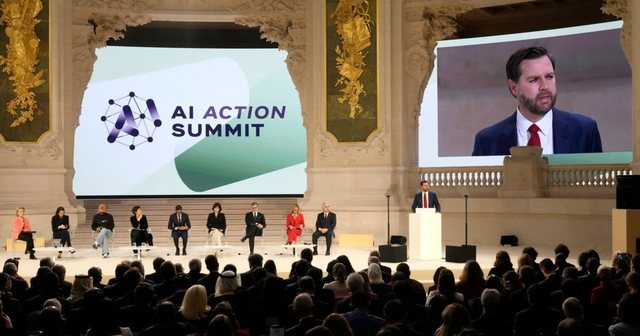
US Vice President JD Vance warned world leaders and tech executives on Tuesday that “overregulation” could harm the rapidly growing artificial intelligence industry, in a criticism of European efforts to reduce the risks posed by artificial intelligence.
His speech also highlighted the contrasting positions on artificial intelligence. The United States, under the new administration of President Donald Trump, supports a more liberal approach to foster innovation, while Europe is further tightening its strict rules to ensure accountability and safety. Meanwhile, China is rapidly expanding its artificial intelligence sector through giant state-backed companies and aims to dominate the global race.
The United States was conspicuously absent from the 60 countries that signed a declaration pledging “to promote access to artificial intelligence to bridge the digital divide” and “to ensure that artificial intelligence is open, inclusive, transparent, ethical, safe, and trustworthy.”
The agreement also called for "artificial intelligence to be sustainable for people and the planet" and to protect "human rights, gender equality, linguistic diversity, consumer protection and intellectual property rights."
Vice President Vance's Message
At the summit, Vice President Vance delivered his first major policy speech since taking office last month, calling artificial intelligence a game-changer but warning that "at this moment, we face the extraordinary prospect of a new industrial revolution, akin to the invention of the steam engine."
"But that will never happen if excessive regulations discourage innovators from taking the risks necessary to achieve progress," said Vice President Vance.
The 40-year-old US vice president is using his participation in the high-level meeting on artificial intelligence and the Munich security conference later this week to project President Trump's new style of dynamic diplomacy.
President Trump's administration will "ensure that American-made artificial intelligence systems will not have ideological bias," Vice President Vance said, and vowed that the United States would "never restrict the freedom of expression of our citizens."
Vice President Vance criticized other governments for “tightening the parameters” for American technology companies, saying such moves were troubling. His comments highlighted a growing divide between Washington and European allies over what rules could be set for artificial intelligence.
European Commission President Ursula von der Leyen stressed that “artificial intelligence needs people’s trust and must be safe,” and that the detailed EU guidelines aim to set a standard within the union for artificial intelligence. She acknowledged, however, concerns about the possibility of excessive regulation.
"At the same time, I know we need to make it easier, reduce bureaucracy, and we will do that," said Ms von der Leyen.
She also announced that the "InvestAI" initiative has reached a total investment of 200 billion euros across Europe, including 20 billion euros for the artificial intelligence manufacturing sector.
The race for artificial intelligence dominance
The high-level meeting highlighted rival strategies for artificial intelligence on the global stage – Europe wants to set rules and make investments; China is expanding artificial intelligence through giant state-backed companies; and the United States wants a free-market approach without a regulatory framework.
French President Emmanuel Macron positioned Europe as a "third alternative" in the artificial intelligence race, one that avoids dependence on major powers, such as the United States and China.
"We want a fair and open approach to these innovations for the entire planet," he said in his closing speech, arguing that the artificial intelligence sector "needs rules" on a global scale to build public trust and calling for greater "international governance."
Mr Macron welcomed recent announcements of new investments in France and across Europe that highlight the continent's ambitions for artificial intelligence. "We are part of the race," he said.
Chinese Vice Premier Zhang Guoqing, special envoy of Chinese President Xi Jinping, reinforced Beijing's goal of setting the global standard for artificial intelligence.
Vice President Vance has been outspoken in his criticism of European content moderation policies and suggested that the United States should reconsider its commitment to NATO, while European governments have placed restrictions on Elon Musk’s social media platform X. Vice President Vance’s visit to Paris was also expected to include direct discussions on Ukraine, the role of artificial intelligence in the changing global power structure, and U.S.-China tensions.
How can the artificial intelligence sector be governed?
Concern about the potential risks of artificial intelligence dominated the summit, particularly as countries try to draft rules for a technology that is increasingly intertwined with the defense sector and combat operations.
"I think one day we will have to find ways to control artificial intelligence, or else we will lose control of everything," said Admiral Pierre Vandier, the NATO commander tasked with overseeing the alliance's modernization efforts.
Beyond diplomatic tensions, the "Current AI" initiative is being prepared, a global partnership between the public and private sectors, which aims to support large-scale artificial intelligence initiatives that serve the public.
Analysts see this as an opportunity to balance the dominance of private companies in the development of artificial intelligence. It remains unclear, however, whether the United States would support such efforts.
In parallel, an important battle is also taking place in the private sector regarding artificial intelligence.
A group of investors, led by Mr. Musk, who now heads the Department of Government Efficiency, has submitted a $97.4 billion offer to buy the organization that owns OpenAI. OpenAI CEO Sam Altaman, also at the Paris summit, quickly rejected the offer on the X network.
In Beijing, officials on Monday condemned Western efforts to restrict access to artificial intelligence tools, while calls increased in the US Congress to restrict the use of the Chinese company's new program DeepSeek, due to security concerns. China supports open-source artificial intelligence, saying that open access to artificial intelligence will create global benefits.
France, the host country of the summit, hopes to boost investment in the artificial intelligence sector in Europe, positioning the region as an important participant in the competition for this industry led by the United States and China.
Speaking about the energy needs of artificial intelligence, French President Emmanuel Macron noted the difference between France's approach to nuclear power and the United States' reliance on fossil energy sources.
Vice President Vance's diplomatic tour will continue in Germany, where he will attend the Munich Security Conference and urge European allies to increase their contributions to NATO and to Ukraine. He may also meet with Ukrainian President Volodymyr Zelenskyy.
Discussion about Ukraine and the Middle East with French President Macron
Vice President Vance will discuss Ukraine and the Middle East during a working lunch with Mr. Macron.
Like President Trump, Vice President Vance has questioned American aid to Kiev and the West's broader strategy toward Russia. President Trump has pledged to end the war in Ukraine within six months of taking office.
Vice President Vance was also expected to meet with Indian Prime Minister Narendra Modi and European Commission President Ursula von der Leyen./ VOA
Latest news








Golem and Qerret without water at the peak of the tourist season
2025-07-01 21:09:32

Euractiv: Italy-Albania migrant deal faces biggest legal challenge yet
2025-07-01 20:53:38
BIRN: Brataj and Fevziu victims of a 'deepfake' on Facebook
2025-07-01 20:44:00

Vlora by-pass, work delays and cost increases
2025-07-01 20:24:29



Milan are expected to give up on the transfer of Granit Xhaka
2025-07-01 19:41:25

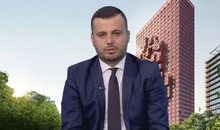
The silent but rapid fading of the towers' euphoria
2025-07-01 18:58:07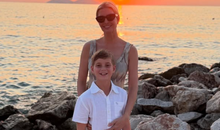
Donald Trump's daughter says 'goodbye' to June with photos from Vlora
2025-07-01 18:48:47
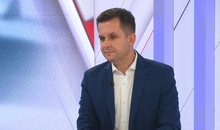
Tirana vote recount, Alimehmeti: CEC defended manipulation
2025-07-01 18:15:05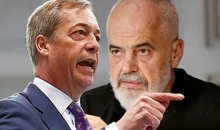
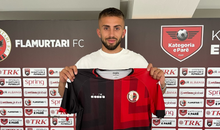
Left Flamurtari, striker signs with another Albanian club
2025-07-01 17:43:14
Accident on the Lezhë-Shëngjin axis, one injured
2025-07-01 17:19:35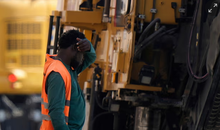
June temperature records, Italy limits outdoor work
2025-07-01 17:03:15

Meet Kozeta Miliku, named one of the top five scientists in Canada
2025-07-01 16:32:12
"Arsonist" arrested for repeatedly setting fires in Vlora (NAME)
2025-07-01 16:29:45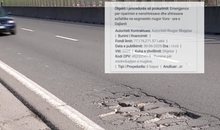

The ecological integrity of the Vjosa River risks remaining on paper
2025-07-01 16:09:40
Heat Headache/ Causes, Symptoms and Measures You Should Take
2025-07-01 16:01:13
UN: The world must learn to live with heat waves
2025-07-01 15:54:50

Three cars collide in Tirana, one of them catches fire
2025-07-01 15:38:16
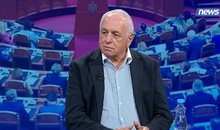
Shehu: Whoever doesn't want Berisha, doesn't want the opposition 'war'!
2025-07-01 15:19:20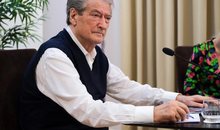
Berisha requests the OSCE Assembly: Help my nation vote freely
2025-07-01 15:11:46
Be careful with medications: Some of them can harm your sex life
2025-07-01 15:00:32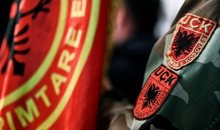
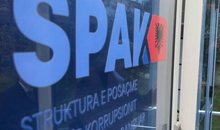
'Golden Bullet'/ Lawyers leave the courtroom, Altin Ndoc's trial postponed again
2025-07-01 14:44:52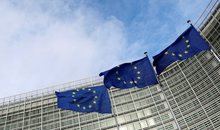
EU changes leadership, Kosovo in a number of places
2025-07-01 14:40:01
Should we drink a lot of water? Experts are surprised: You risk hyponatremia
2025-07-01 14:30:20

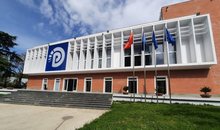

Lëpusha beyond Rama's postcards: A village that is being silently abandoned
2025-07-01 13:41:56
Scorching temperatures in France close the Eiffel Tower
2025-07-01 13:29:35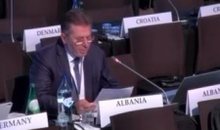
Media: China, Iran and North Korea, a threat to European security
2025-07-01 13:20:12
Albania drops in global index: Less calm, more insecure
2025-07-01 13:09:35
Road collapses, 5 villages in Martanesh risk being isolated
2025-07-01 13:03:04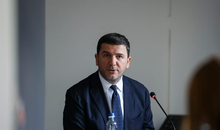
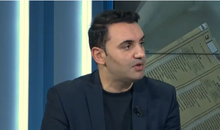
Këlliçi: Opposition action to be decided in September
2025-07-01 12:48:49
Four tips for coping with the heat wave
2025-07-01 12:38:53
Car hits pedestrian on Transbalkan road
2025-07-01 12:27:09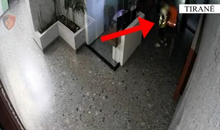
Authors of 9 robberies, Erjon Sopoti and Abdullah Zyberi arrested
2025-07-01 12:15:56
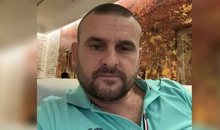
He abused his minor daughter, this is a 36-year-old man in custody in Fier
2025-07-01 11:50:34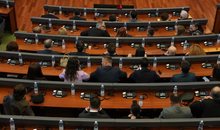
The constitution of the Kosovo Assembly fails for the 40th time
2025-07-01 11:40:08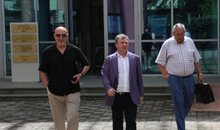



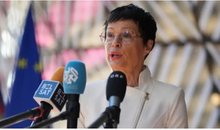
EU confirms support for the Western Balkans
2025-07-01 10:50:45
Serious in Fier! Father sexually abuses his minor daughter
2025-07-01 10:32:33
One year since the passing of the colossus of Albanian literature, Ismail Kadare
2025-07-01 10:25:26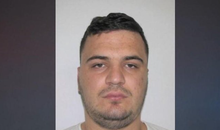
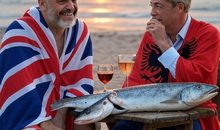

They supplied the 'spaçators' with drugs, two young men are arrested in Tirana
2025-07-01 09:54:09
Europe is "scorching", how dangerous are high temperatures?
2025-07-01 09:48:56
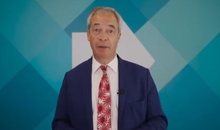
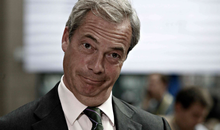
Nigel Farage in Albania: but why?
2025-07-01 09:13:12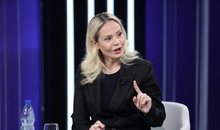
Xama: The "Partizani" dossier is quite weak and without facts!
2025-07-01 09:04:47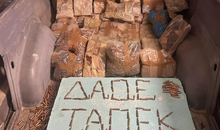
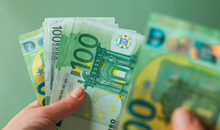
Foreign exchange, the rate at which foreign currencies are sold and bought
2025-07-01 08:35:39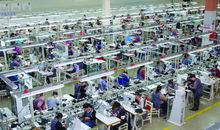
Fabricators again warn of factory closures and job cuts
2025-07-01 08:21:30
Horoscope, what do the stars have in store for you today?
2025-07-01 08:08:59
Scorching hot, temperatures reaching 40°C
2025-07-01 07:57:12
Morning Post/ In 2 lines: What mattered yesterday in Albania
2025-07-01 07:42:59
Recount after May 11, Braho: I had no expectations for massive vote trafficking
2025-06-30 22:54:18

Second hearing on the protected areas law, Zhupa: Unconstitutional and dangerous
2025-06-30 22:18:46



Israel-Iran conflict, Bushati: Albanians should be concerned
2025-06-30 21:32:42

Fuga: Journalism in Albania today in severe crisis
2025-06-30 21:07:11
"There is no room for panic"/ Moore: Serbia does not dare to attack Kosovo!
2025-06-30 20:49:53

Temperatures above 40 degrees, France closes nuclear plants and schools
2025-06-30 20:28:42
Lavrov: NATO is risking self-destruction with new military budget
2025-06-30 20:13:54
Turkey against the "Bektashi state" in Albania: Give up this idea!
2025-06-30 20:03:24

Accused of sexual abuse, producer Diddy awaits court decision
2025-06-30 19:40:44


